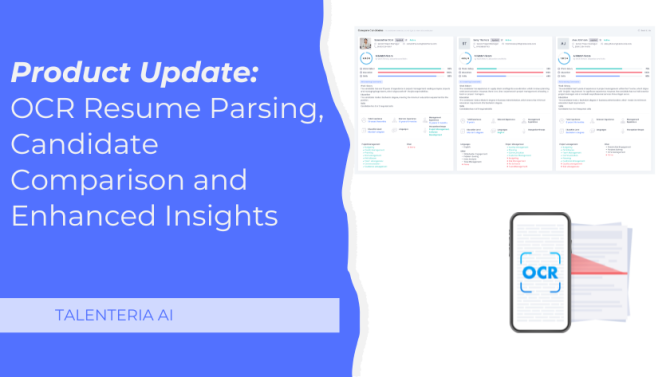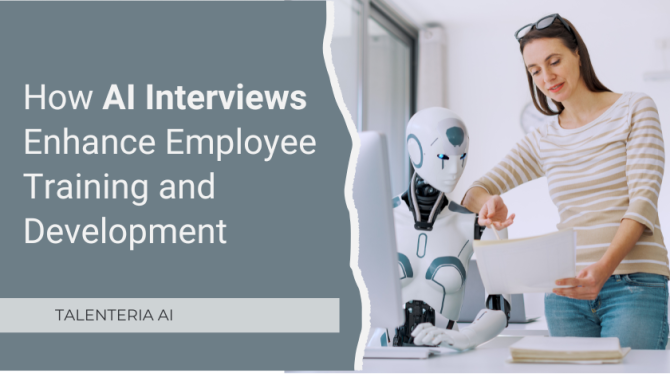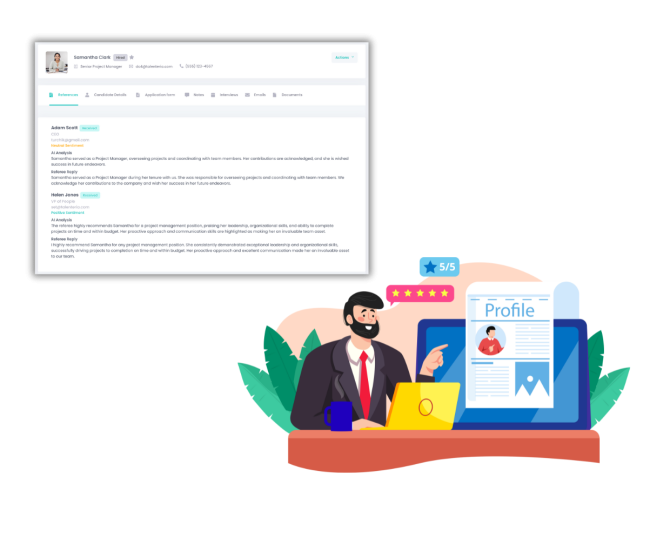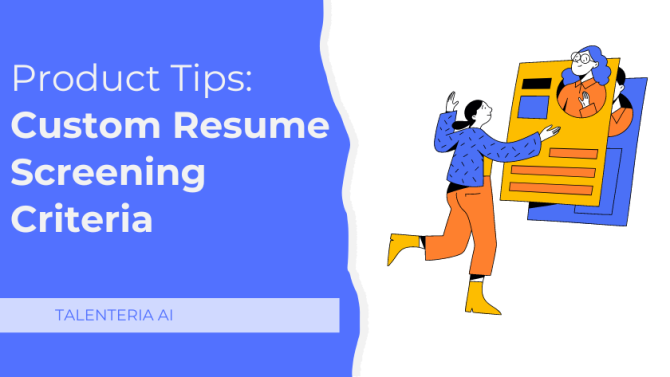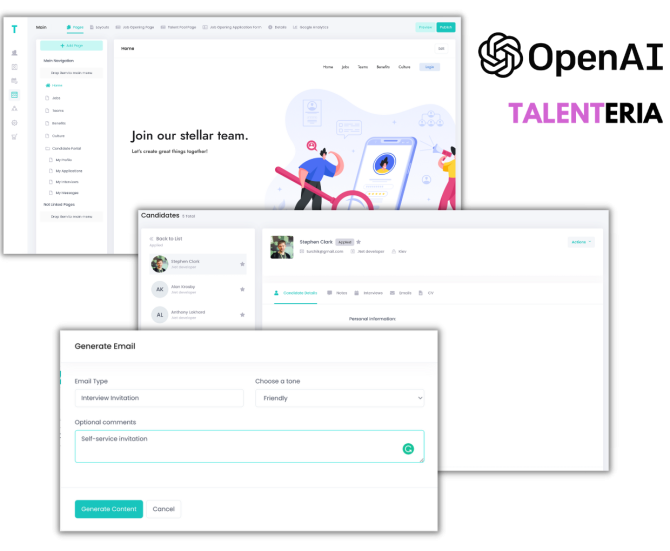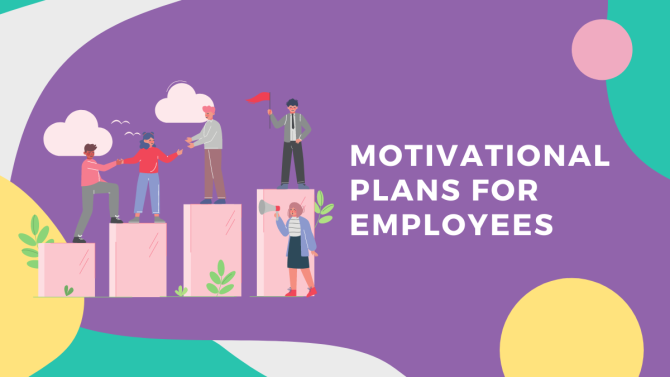
What motivates you? Motivation is the intrinsic enthusiasm that drives people to perform activities. This is why employee motivation is a major contributing factor for a thriving business or organization. Motivated employees deliver high productivity, creativity, and commitment.
However, motivating employees is a challenging job, especially for the manager. This post will help you understand employee motivation and discuss plans to raise motivation in the workplace.
What Is Employee Motivation?
Employee motivation is an employee’s willingness and mental effort to get the job done despite the distractions. Coming from the Latin word “movere” or “movement,” motivation refers to the behavior of the employees while trying to achieve their goals.
Motivation can’t be measured because it’s intangible. It’s also hard to control, but success in doing so is critical in your company’s performance. To motivate employees, you should understand their needs. There are two main types of employee motivation:
1. Intrinsic Motivation
In intrinsic motivation, the employees become naturally motivated to work when the work itself motivates them. The company’s goals align with their beliefs, making them want to perform well. They find the work fulfilling, satisfying, or enjoyable. Unlike extrinsic motivation, this is more effective as it comes from within the employees instead of being imposed.
As a manager, make sure to give comments so they are aware of your expectations. You also need to be vocal about your praises to empower your employees.
2. Extrinsic Motivation
On the other hand, this type of motivation is prompted by outside factors. These factors can be recognition, rewards, or punishments. Research proves that extrinsic motivation pushes employees to learn new skills.
As a manager, you need to be careful about how these rewards and penalties can affect your employees’ performance and objectives.
Why Does Employee Motivation Decrease?
Here are some reasons why:
- Mismatched Values: The employees fail to contribute to or connect with the values of the task.
- Lack of Self-Efficacy: The employees believe they lack the capacity to perform the task.
- Disruptive Emotions: The employees are consumed with negative emotions such as anger, anxiety, and even depression.
- Attribution Errors: The employees cannot identify the reason for their struggles regarding the task or see their struggles as out of their control.
7 Motivational Plans for Employees
A motivational plan is a scheduled step taken by managers to motivate employees for harmony and productivity. Below are some motivational plans for employees to improve the quality of work and create a positive and happy working environment.
1. Increase Your Connection With Employees
Many managers don’t think it’s appropriate to share a friendly cup of coffee or meal with a team member. However, personal connection guarantees employee motivation and loyalty. As long as boundaries are set, it’s important to develop a personal connection with your employees. Personal connections help you learn more about the employees, including their satisfaction in their career and workplace.
Professional connection is also critical. Appreciating employees’ hard work and giving them periodic appraisals is needed. This is to make sure employees are correctly working and taking their career responsibilities seriously. Primarily if employees deal with routine activities, they may tend to cut corners or be inattentive.
To prevent disconnection from happening, you can try the following:
- Schedule a monthly session with each employee.
The intent is to discuss his past and current performance and update him regarding opportunities on the job. This can be difficult to accomplish, especially for large companies. But it’s vital in keeping the employee attached so accomplish a schedule that aligns your down or free time with the workers. This will show that you value and care about the employee’s growth.
- Have regular meetings with your team.
Use this session to appreciate and keep your employees in the loop. Share good and bad news that affect them, be transparent, and bond as a team by supporting each other.
- Introduce your top performers to senior management.
Assure impressive employees that their hard work is valued and noticed by introducing them to senior management. This will validate the top-performing employees while others will be motivated to perform better.
2. Tailor Rewards Based On Each Employee’s Needs
Employees will put in a high level of effort when they’re confident that it’ll result in their desired income. The tendency to be more motivated depends on the attractiveness of an outcome and how much they want it.
Giving rewards for good performance is still underutilized by most managers. But it’s one of the most powerful tools in achieving organizational objectives. To motivate your employees, you should tailor the reward according to their wants and needs. Honest and personalized rewards create a healthy work culture and environment.
The following are different types of rewards you can consider:
Recognition Awards
Employee recognition or acknowledgment drives them to keep or boost their performance. Below are some examples:
- Years of Service Award
- Quarterly Bonuses
- Workplace Recognition Programs
- Annual Bonuses
- Peer-to-Peer Recognition
- Employee Appreciation Day
- Celebrating Employee Life Events
The types of awards you can choose include:
- Gift certificate
- Personalized plaque
- Appreciation mail from the president or top boss
Challenge Rewards
Some employees take challenges more seriously if they can gain something from them. They become more motivated when they are required to push themselves beyond their comfort zone. A great way to determine the type of reward you can offer is to ask your employees what they want. Their responses matter, so don’t take them for granted.
Monetary Rewards
Giving monetary incentives will improve performance but make sure your employees keep to proper job ethics. Always be fair and pay your employees for the job effort, skill, and competence they put into the tasks. Different types of pay programs include:
- Piece-Rate Pay
- Bonuses
- Skill-Based Pay
- Gainsharing
- Merit-Based Pay
- Profit-Sharing Plans
- Employee Stock Option
3. Redesign Work
Redesigning jobs means evaluating whether certain functions, services, or products should be removed or modified to increase efficiency.
- Job Rotation: Routine tasks lose the challenge and employees’ interest that increases boredom and lowers motivation. Consider reassigning an employee periodically from one task to do other tasks of the same level that require the same skill sets.
- Job Enlargement: Think about diversifying your employees’ tasks to reduce monotony and increase employee engagement. It can also be considered pre-promotion training.
4. Increase Employee Involvement
Expanding employee participation can hike their commitment to the organization. It will also help in employee development, growth, and loyalty.
The three major employee involvement programs you can consider are:
- Participative Management: This involves programs where subordinates can participate in the decision-making process with their superiors. For this program to work, issues that must be discussed should relate to the employees’ interests. Moreover, as the manager, you must possess the knowledge and competence to help them in decision-making.
- Representative Management: It concerns a group of employees that acts as representatives for all employees working in an organization. They participate in the decision-making process to ascertain that the employees’ interests are protected.
- Quality Circle: A quality circle is composed of employees and supervisors who meet regularly to discuss issues, recommend solutions, and take actions to correct problems.
Below are more ideas to encourage employee participation and promote growth:
Action: Have Adequate Training to Strengthen Professional Skills
Employees should attend training to update their knowledge and hone their skills. Organize training that will enhance their overall performance and aid them in connecting better with the other employees. Training shows the company’s dedication to helping its employees learn more about their careers to open up more opportunities.
Action: Empower and Assist Their Growth
Career goals will motivate employees to advance in their careers. Empower them to have higher goals and help them realize what they want out of their work. Aid them in the steps they need to take to get a promotion or advance in other departments.
Action: Plan Team Building Activities With Clear Objectives
Dedicating time and planning events or conferences with your employees as participants will boost morale, improve relationships, and paves the way for more excellent collaborations.
5. Curate a Supportive Work Environment
The work environment is a crucial factor in hindering or enhancing the functioning capabilities of employees. A workplace with well-equipped tools eases work and makes employees more effective. A supportive working environment stimulates their performance, thereby increasing their motivation.
6. Foster Employee Autonomy
It’s a good motivator when you demonstrate your trust to your employees by letting them do their job without constantly checking on them. A good manager is not overly controlling but is also not lenient. They let their employees know that they are available whenever workers need guidance.
7. Be a Good Example
Employees tend to follow their manager’s traits, may they be good or bad. Remember that the attitude you have in handling work matters and will spread to your team. Whatever personal setbacks you may have, you shouldn’t let them affect the other employees.
Get the Best Employees On Your Team
No matter how small or big your company is, employee motivation plays a vital role in its success. If you are looking for tools that can help you build a successful team and motivate your employees, you should start with a great recruitment system. Talenteria’s services will help you find the best team for your company: acquire the right talent with our innovative career site builder and recruitment marketing platform.
